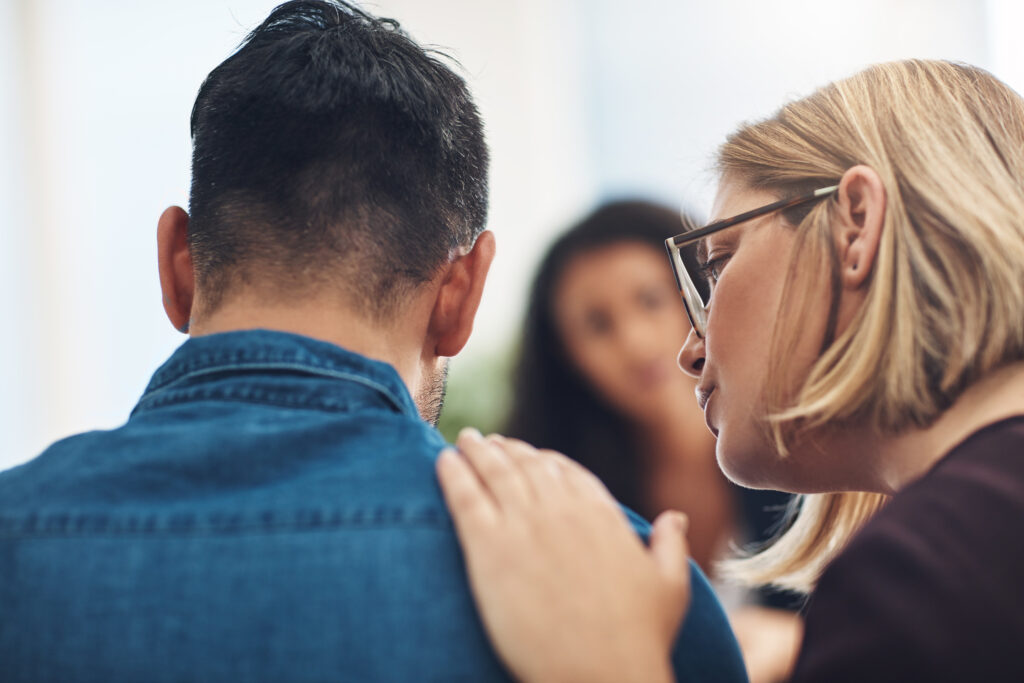A Step-by-Step Guide to Marijuana Addiction Treatment

As more and more states legalize both the medicinal and recreational use of marijuana, concerns about the possibility of addiction and overdose continue to rise as well.
It isn’t actually possible to become chemically addicted to marijuana in the same way you can become addicted to tobacco or opioids, and because of this, an overdose (in the traditional sense) is impossible. In other words, despite the fact some people ingest copious amounts of cannabis on a daily basis, there has never been a recorded marijuana-related death.
It is, however, very possible to develop an unhealthy dependence on the plant, even if your initial usage was for an appropriate cause.
The dangers of a marijuana addiction
Someone might have begun using marijuana for legitimate medical reasons — such as to manage insomnia, chronic anxiety or depression — but then ended up relying on marijuana much more than they anticipated.
For example, maybe in addition to using cannabis to help them sleep, they also started using it in the mornings because it made going to work less depressing; perhaps that then escalated to using again a few hours later to combat mid-afternoon energy slumps, and then again at night to help them sleep.
A psychological addiction to marijuana, while nonfatal, is not something to take lightly. It may not have the potential to kill you as other drugs do, but it still has the ability to dominate and derail your life in different ways.
Signs and symptoms of a marijuana addiction
It can be difficult to know when marijuana use becomes problematic, especially since most people can use cannabis without any complications. There are, however, some specific signs and symptoms of marijuana addiction that you can keep an eye out for.
Here are some of the symptoms you’d experience:
- Heightened anxiety, irritability, depression
- Physical side effects such as sweating, chills, restlessness
- Consistent cravings, hoarding behaviors, or spending money on it that was intended to be for bills, groceries or other necessities
- Dramatically increased tolerance (therefore leading to higher doses)
Here are some additional signs to watch out for in you or a loved one:
- Unable to feel happy or have a good time without cannabis
- Withdrawing from or dismissing relationships or social gatherings
- Upping doses and/or using multiple times a day
- Irresponsible or inappropriate use, taking risks while under the influence
- Ignoring responsibilities, and lacking motivation or drive to pursue goals
If you think you or a loved one may have developed a psychological addiction to marijuana, you might be wondering what marijuana addiction treatment looks like, especially since it isn’t a conventional addiction.
We’re going to walk you through the whole process of marijuana addiction treatment and recovery.
What marijuana addiction treatment looks like
The cornerstone of marijuana addiction treatment is almost always therapy. Since marijuana is a psychological addiction, there is not often a formal detox your body has to undergo, though you might experience some minor withdrawals upon stopping or minimizing your use of the plant. Some of these withdrawal symptoms might include — restlessness, mood swings, insomnia/fatigue or reduced appetite.
When an addiction is psychologically based, such as marijuana or gambling, behavioral therapy is one of the most successful, beneficial treatments out there. Enrolling in therapy gives you the opportunity to delve into the source of the addiction, to gain a deeper sense of yourself, your struggles, and better understand what is leading you to lean so heavily on marijuana.
Behavioral therapy will also empower you to better know how to combat cravings and relapses. It will also equip you with the tools to develop more balance and positive sober habits to foster more natural happiness and peace in your life.
You might be encouraged to join a marijuana addiction support group, in order to meet others on the road to recovery as well. Support groups are a great way to not only find community and camaraderie along your journey, but also to receive genuine support, empathy and encouragement from people who understand what you’re going through.
In addition to having a therapist or joining a support group, marijuana addiction treatment can also include medication, particularly if there is a mental health condition in addition to the addiction.
Oftentimes, a marijuana addiction develops as a way of coping with some sort of undiagnosed mental illness or traumas that have never been addressed; being prescribed the appropriate medication for your situation can be highly beneficial to your long-term recovery.
If you’re wondering about entering into a full-time, in-patient rehabilitation center, you don’t have to worry. Most people are able to overcome their marijuana addiction without ever enrolling in a full-scale rehabilitation center, and chances are, you’ll do the same.
Reach out for additional help
A long-respected leader in the field of substance abuse and addiction recovery, our team here at Pyramid Healthcare is passionate about not only helping you through the recovery process, but setting you up for the utmost success and happiness in life post-recovery.
We offer a variety of marijuana addiction treatments, partnering with each client to design a highly personalized treatment plan that matches your unique background and specific goals in life. Our empathetic staff is dedicated to helping you regain the future you know you were meant to have, by working closely with you during enrollment, recovery, and post-recovery life.
Send us a message or give us a call today at 301-997-1300.



